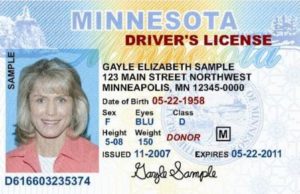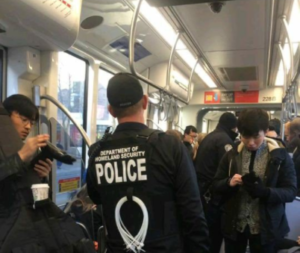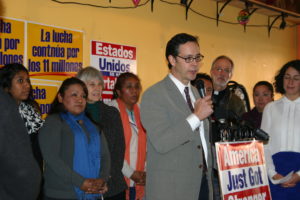UPDATED Friday, 3/24/17
On Monday, March 20, U.S. Immigration and Customs Enforcement (ICE) released the first weekly report required by President Trump’s executive order regarding immigration. The report lists all the jurisdictions that didn’t hold prisoners past their release date so that ICE could decide whether or not to pick them up, a process called an ICE detainer.
The Trump administration’s shame-and-blame tactic calls the cities or counties “non-cooperative jurisdictions.” The U.S. Conference of Mayors says that’s not accurate:
“It lists jurisdictions as non-compliant that are currently complying with federal law, the City of New Orleans among them.
“It ignores the Constitutional requirement under the 4th Amendment that there be a warrant for a jurisdiction to hold someone who would otherwise be released.
“It ignores due process in the more than half of the cases cited in which the individual has been charged with – but not convicted of – a crime.
Moreover, the mayors’ conference says, the statements coming from ICE promote “the false narrative that immigrants are criminals when studies have shown that the incidence of criminality is less among immigrants than among the native-born population.”
An immigration detainer is a request from ICE to a local law enforcement agency to keep an immigrant in jail past the time of their court-ordered release. A detainer is an administrative request from ICE, without any judicial determination or warrant. A detainer can issue for someone arrested for not paying parking tickets or for arrested for murder. Los Angeles Mayor Eric Garcetti criticized ICE detainer practice in an article in The Hill:
“[We] coordinate and collaborate with our federal law enforcement all the time, we just require it be done in a constitutional manner with due process, and with a court issued warrant,” said Garcetti.
Garcetti said the abuse of detainers is a problem that precedes the Trump administration. In past administrations, he said, detainers were supposed to be used only for serious criminals.
“When we looked at the detainer requests, they were not often focused on any serious crimes,” he said.
The focus on detainers and “non-cooperation” is part of the Trump administration’s attack on “sanctuary cities.” Any jurisdiction that requires a warrant or judicial order, rather than a detainer, runs the risk of losing federal funding and also of being blamed for any criminal activity subsequently committed by an immigrant who is released on bail, or after serving a sentence, or even after being found not guilty of all charges.
Hennepin County was named in the first report as a non-cooperating jurisdiction. According to MPR, the sheriff’s office notifies ICE before releasing “someone ICE is interested in,” but ICE picks up no more than one-third of the people it initially says it wants. MPR reports:
“James Franklin, executive director of the Minnesota Sheriffs’ Association, said Hennepin County is doing things by the book, following legal advice given to county sheriffs.
“We cannot hold for ICE unless it is a detainer that has judicial authorization,” Franklin said.”
According to the ICE report, Hennepin County declined two detainers during the week of January 28-February 3.
UPDATE 3/24/17: MPR News reported this morning that the ICE report is wrong: both people named in the detainers were taken into custody by ICE upon release. Sheriff Rich Stank said the department does not comply with detainers because they are illegal, but the department does advise ICE of the time of release. He furnished photos to MPR, showing ICE officials taking custody of each individual.
ICE said numbers of detainers will rise dramatically across the country, due to a new policy:
“ICE field offices have been instructed to resume issuing detainers on all removable aliens n a LEA’s custody regardless of prior non-cooperation. As a result, the number of issued detainers will increase over the next several reporting periods.” [Emphasis in original]
“Removable aliens” is a category that new Trump administration policies have made dramatically larger. Many immigrants charged with minor crimes as well as immigrants who have been convicted of crimes and served sentences in the past are now included in this category. The category includes unauthorized immigrants as well as some immigrants with valid visas and some permanent legal residents.
In a March 22 editorial, the New York Times called the detainer policy and report, “President Trump’s Reckless Shame Game.” Taking aim at the report, the New York Times wrote:
“The idea is to name and shame these agencies, accusing them of recklessly loosing dangerous aliens onto the streets. …
“The accusation is dishonest. The report is a sham. And the claim of protecting public safety is ridiculous — dangerously so.
“When local authorities decline to honor ICE detainers, they can have any number of good reasons for doing so. A likely one is the Fourth Amendment, which forbids imprisoning anyone without justification.”
For more information:







